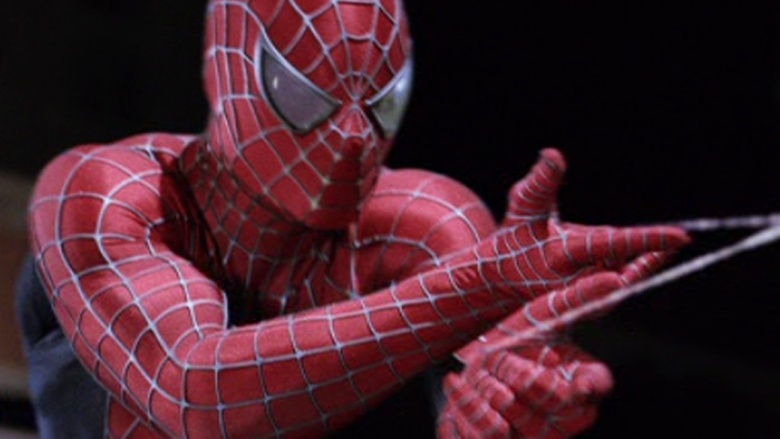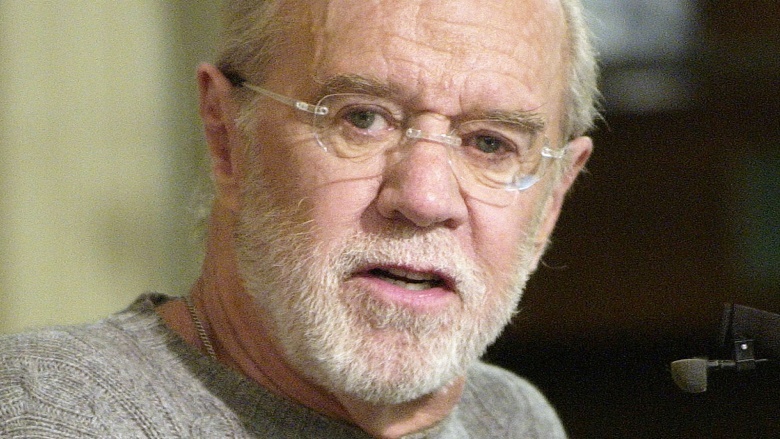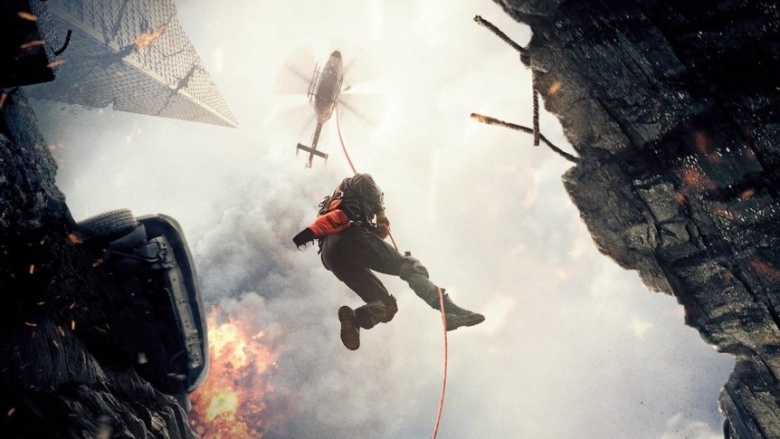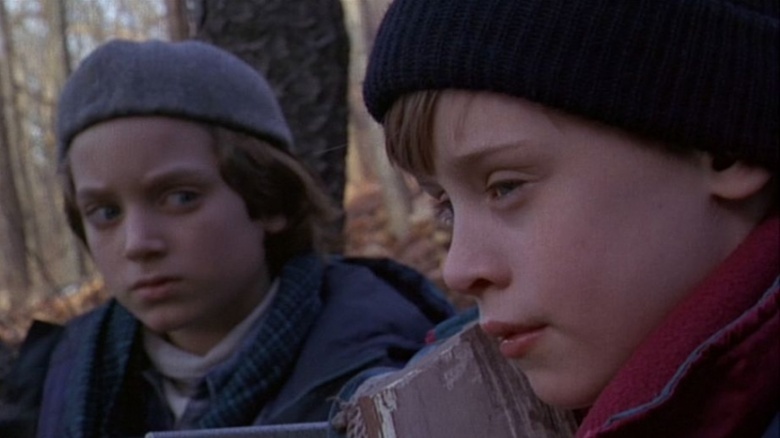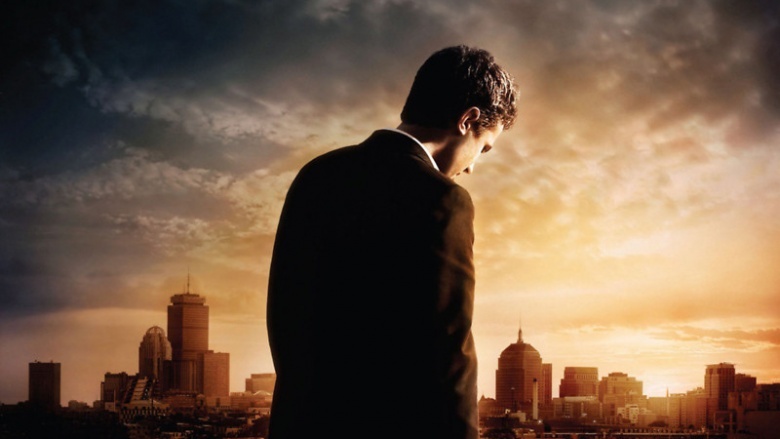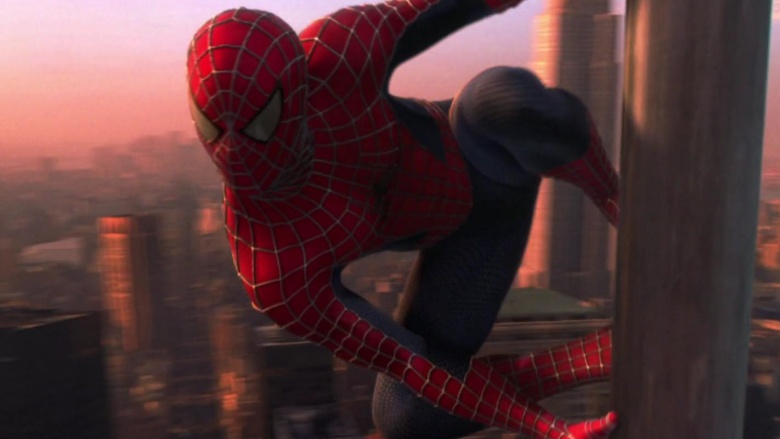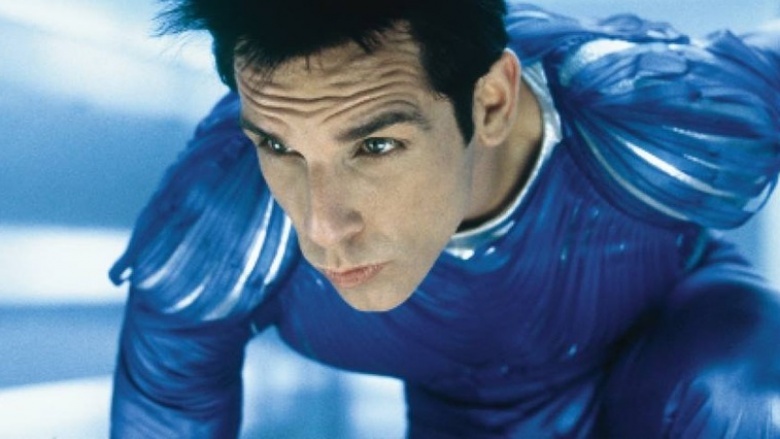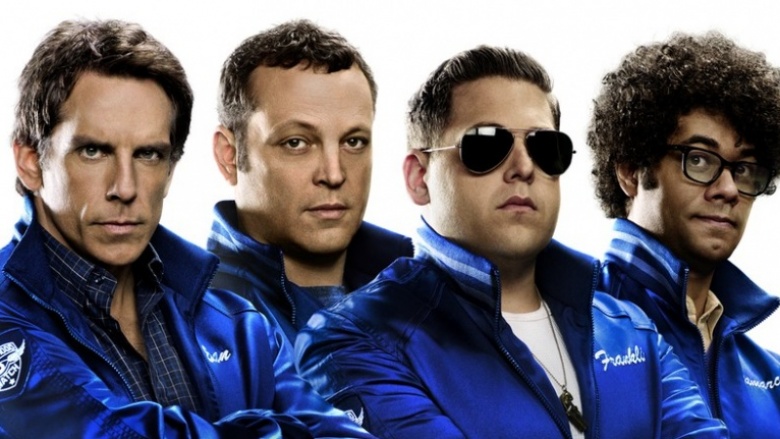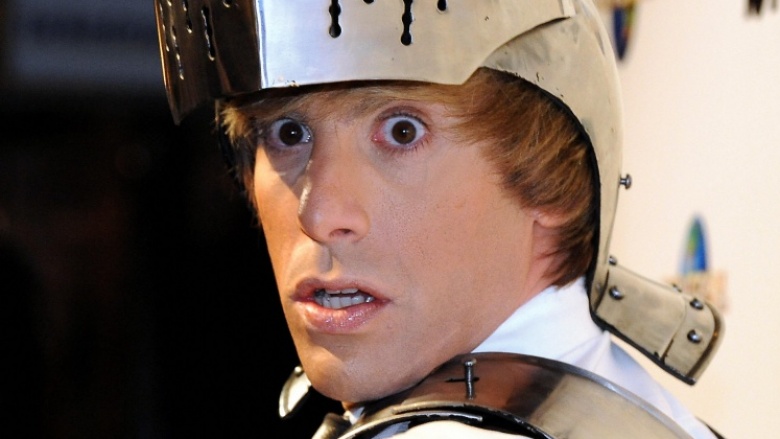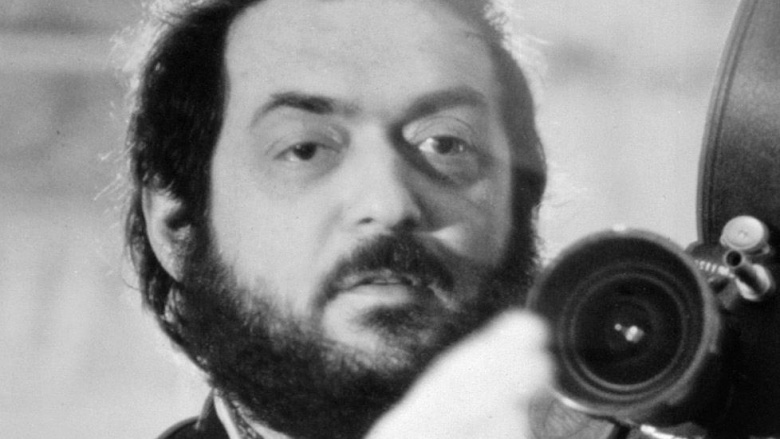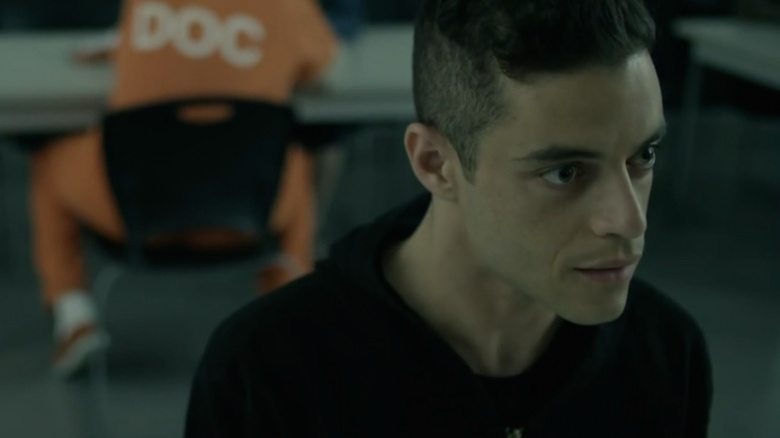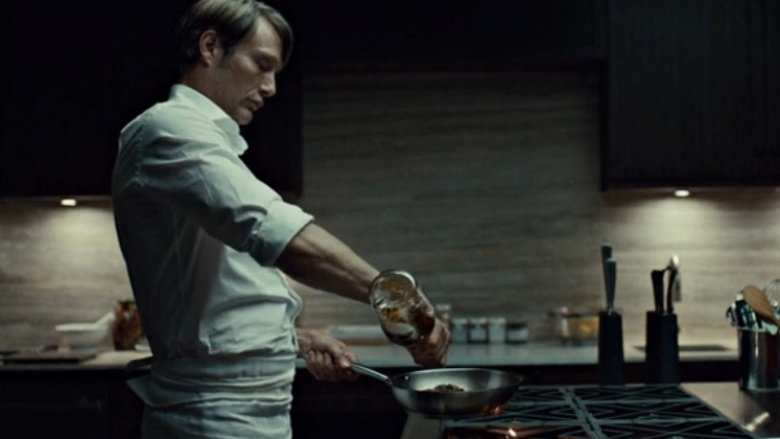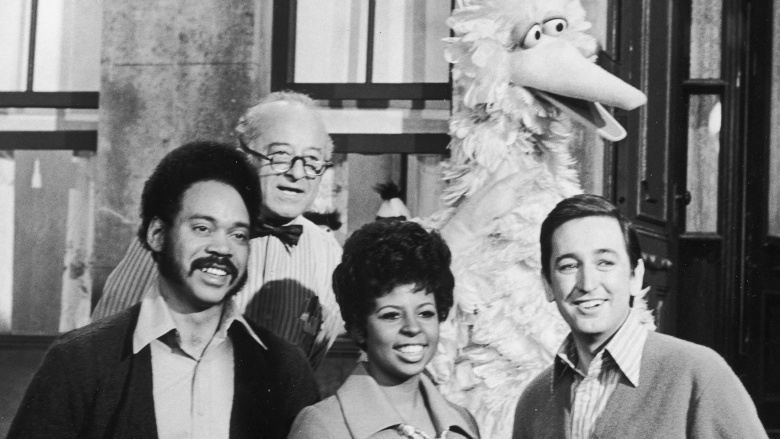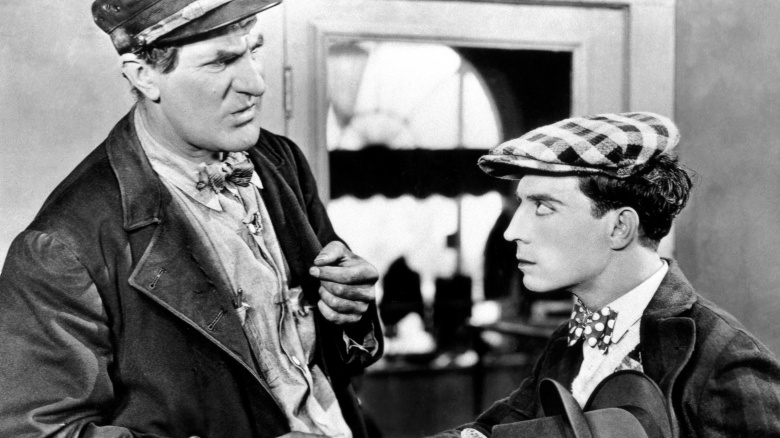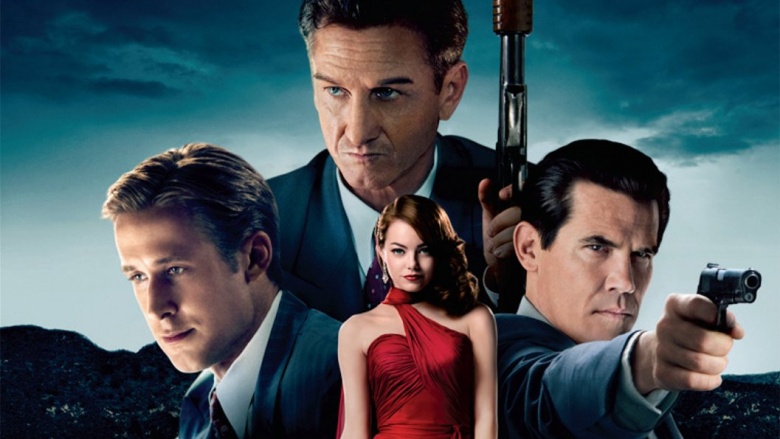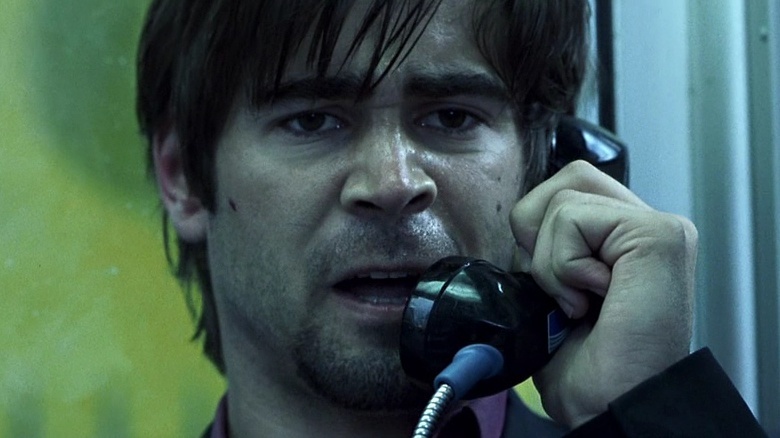Times Real Life Disasters Changed A Movie Or Show
Life and art go hand in hand, feeding off of and inspiring one another. But when life and art become a little too similar, changes sometimes have to be made to art for the sake of good taste and human compassion. Here are some movies and shows that had to get changed when they became a little too real.
George Carlin: Complaints And Grievances (2001)
The late comedian George Carlin was never known for pulling his punches. During some of his legendary stand-up routines, he has said things like how he hopes Mickey Mouse dies, how he's tired of hearing about innocent victims, and how he felt there was too much security at airports. And let's not forget his famous "Seven Words You Can Never Say on Television" routine. In a sense, nothing was too sacred to Carlin. That is until the World Trade Center attacks on September 11, 2001. Before the attacks, Carlin had scheduled a stand-up special with HBO, which was originally titled I Kind of Like It When A Lot of People Die. After the attacks, Carlin had a change of heart about the title and wisely changed it to Complaints and Grievances.
San Andreas (2015)
Warner Bros. had a decision to make about their summer blockbuster, starring Dwayne "The Rock" Johnson, after a violent earthquake struck the small Asian nation Nepal. The earthquake, which killed over 9,000 people, hit about one month before the movie, which was finished, was scheduled for release in theaters. Warner Bros. couldn't go back and do reshoots, so what they did was adjust how they promoted the film. At the end of commercials for the film, the studio added PSAs to provide viewers with information about how they could participate in relief efforts.
The Good Son (1993)
The Good Son, which had been in development since the 1980s, was originally meant to be a transitional movie for its star Macaulay Culkin, who was 12 or 13 years old at the time. With this movie, he was going to stop being the cute kid who gets into crazy adventures, and become an actor who tackles more serious roles. In the movie, Culkin plays a psychotic child with a death fixation, opposite a young Elijah Wood. However, a horrific, real-life murder occurred around the same time as the movie was set to release. In England, two-year-old James Bulger was kidnapped and murdered by two ten year olds. The similarities between some of the film's plot points and James Bulger's murder were too strong for some people. As a result, understandably, the British release of the movie was canceled.
Gone Baby Gone (2007)
Ben Affleck's directorial debut, Gone Baby Gone, is another case in which art imitated life a bit too much. The film, which is about two detectives investigating a child abduction, received rave reviews in both the United States and in England. However, while the film received these accolades, it bore a disturbing resemblance to the disappearance of four-year-old Madeleine McCann in 2007. Once Affleck learned of the young girl's disappearance, he agreed with his distributor's decision to pull the film from British theaters. Affleck went on to say, "Disney UK made the decision to postpone the movie but I absolutely support it and I'm pleased by what I think is erring on the side of good taste."
Spider-Man (2002)
Changes weren't made to Spider-Man so much as how the film was marketed. One of the original trailers for the film featured the web-slinger foiling a bank robbery in which the robbers make a getaway by helicopter. As the copter flies through the city, Spider-Man snares the whirlybird in a giant web hanging between the Twin Towers. This high-octane teaser hit theaters around July 2001. But after the September 11 attacks on the World Trade Center, Sony pulled the trailer from theaters. Not only that, Sony also recalled movie posters that featured the Twin Towers reflected in the web-slinger's eyes.
Zoolander (2001)
Ben Stiller's satiric take on the world of male modelling is another film affected by the September 11th attacks. Zoolander was shot in and around New York City, so the Twin Towers appeared in the background quite a bit of the original footage. But before the film's release on September 28, 2001, Stiller decided to digitally remove the towers from the movie. He felt that it was the appropriate thing to do.
The Watch (2012)
A sci-fi comedy starring Vince Vaughn and Ben Stiller, The Watch originally went by a different title. Throughout the film's production and all through its early marketing stages in March 2012, 20th Century Fox, the distributor, referred to the movie as Neighborhood Watch. However, after Trayvon Martin was killed on February 26, 2012, the studio felt that it needed to distance its movie from the tragedy. First, they pulled a trailer from theaters, which featured Jonah HIll, who also stars in the film, using his hand to pretend to shoot at teenagers. The studio also played up the sci-fi angle of the movie more. Meanwhile, the studio replaced the original posters featuring bullet-riddled street signs with one featuring the cast, and finally changed the name of the movie to just The Watch. Of course, none of this succeeded in actually making the movie any better.
Bruno (2009)
Like George Carlin, Sacha Baron Cohen is another comedian who's not known for pulling his punches. In his movies, he has poked fun at (in no particular order): the country of Kazakhstan, suburban residents who imitate urban culture, dictators, and the United States. Still, with how daring he is with his comedy, he does have some lines that he will not cross. His film Brüno, in which he takes on Hollywood and the idea of celebrity, originally featured a scene during which the eponymous character interviews LaToya Jackson. In the scene, Mexican workers are used as chairs, sushi is served on the torso of a naked, hairy, overweight man, and no jokes are made at the expense of LaToya's brother, Michael Jackson. However, the King of Pop's death in the early afternoon of the day when Brüno was set to make its Hollywood debut, June 25, 2009, caused Cohen to have a change of heart about the scene. In an almost unheard-of move, Cohen had the scene cut from his film shortly before it premiered, within the span of hours. That's a quick, rare act of compassion from Borat.
Dr. Strangelove (1964)
Dr. Strangelove, Stanley Kubrick's send-up of Cold War hysteria, features some of the funniest scenes and lines in movie history. However, not all of the film originally made it to theaters when it finally premiered in January 1964. We say finally because it was originally set to hit theaters in November 1963. That changed when President John Fitzgerald Kennedy was assassinated in Dallas on November 22, 1963. Coincidentally, that's the date on which the film had its first test screening. Obviously, some things had to be changed. First, a reference to Dallas in the film was overdubbed with Vegas. Also, the film originally contained a pie-fighting scene. In the scene, the president is struck in the face, to which another character replies, "Gentlemen! Our gallant young president has been struck down in his prime!" According to the film's editor, the studio was scared that the line would horrify the Kennedy family, so the scene got nixed.
Mr. Robot (2015)
USA Network's thriller series Mr. Robot was off to a promising start, since it was renewed by the strength of the pilot alone. The series went on to win over audiences and earn a 98% on Rotten Tomatoes. However, the show's never-ending good fortune couldn't last. On the morning that the season one finale was set to air, news reporter Alison Parker and photojournalist Adam Ward were murdered on live television. Plot points of Mr. Robot's season finale bore too strong a similarity to these killings. As a result, the episode got pulled from the airwaves. The show was aired one week later though.
Hannibal (2013, TV Series)
There's a bit of debate going on as to why an episode of the NBC series Hannibal got pulled from the schedule. It was originally thought that the episode titled "Œuf" was pulled because of the Boston Marathon bombing, but that isn't true. NBC's decision came down hours before the bombing, so the two have nothing to do with one another. The episode was actually pulled because of similarities to the Sandy Hook Elementary School shooting. The plot of the pulled episode, which was filmed well before either tragedy, revolves around children committing acts of violence upon other children. Out of sensitivity to the event, NBC pulled the episode from its schedule. However, the episode was made available online, and it does appear on DVD and Blu-ray releases of the season.
Sesame Street (1983)
Since its premiere on November 10, 1969, Sesame Street has been the go-to show for children's education and entertainment. But the smiles and laughter came to a stop for a bit when Will Lee, who portrayed Mr. Hooper since the show's beginning, passed away in 1982. Rather than casting another actor to take up the role or write the character out of the show by having him retire and move away, the producers decided to film a somber, but important, episode dealing with the difficult topic of his death. The intent was to "deal with it head-on" in an "honest and straightforward" manner, according to the show's producers.
Steamboat Bill Jr. (1928)
This Buster Keaton flick underwent costly rewrites when the Mississippi River flooded in 1927, causing $400 million worth of damage and killing hundreds of people. The script for Steamboat Bill Jr. originally ended with a flood. After the Mississippi River flooded in ten states, the ending to the film was changed to culminate with a cyclone instead. The new ending cost the film's production company, United Artists, $135,000 in sets. That's about $1.8 million in today's dollars. And despite all that money, the movie flopped. However, the movie is now considered a classic and a masterpiece. It has even been included in the book 1001 Movies You Must See Before You Die.
Gangster Squad (2013)
Despite being set in the 1940s, Gangster Squad originally featured a scene that closely resembled a tragedy that occurred around the time of its original release date. In one of the trailers, which hit theaters on May 9, 2012, patrons at Grauman's Chinese Theatre are killed in a hail of gunfire. Then on July 20 of that year, 12 people were murdered in the Aurora, Colorado theater shootings. After the mass murder, the trailer was pulled from theaters, and the cast and crew were called in for re-shoots, as the scene had to be replaced. In the end, the studio pushed the film's release date to January 2013. But considering the film's lackluster reviews, maybe they should have just scrapped it altogether.
Phone Booth (2002)
This Colin Farrell-starring psychological thriller, which revolves around a man who is trapped in a phone booth by a sniper, was originally set to debut in theaters on November 15, 2002. But when real life imitated art too much, the release got delayed. Before the time of the film's launch, two men took it upon themselves to hold Maryland, Virginia, and Washington DC hostage with a three week sniper spree in October 2002, which came to be known as the Beltway sniper attacks. Because they felt this horrific event too-closely resembled the plot of their film, the distributors, 20th Century Fox, delayed the film's release until April 2003. But upon its release, the movie received favorable reviews and became a financial success.
